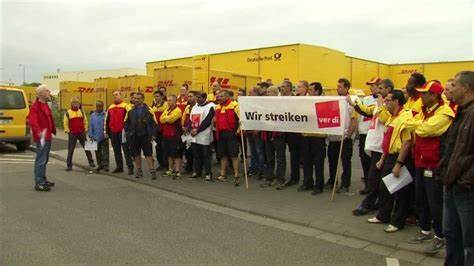The first warning strikes at Deutsche Post have taken place in recent days. The trade union ver.di had called for these strikes after Deutsche Post stubbornly opposed its demands in the current collective wage negotiations.
Ver.di is demanding a collective wage increase of 15% for a contract term of one year and higher training pay. Negotiator Andrea Kocsis stated in this regard that many of the employees have low incomes and are unable to absorb the real wage losses. She described the fact that the Post is not prepared to meet this demand in view of the company's billions in profits as a provocation. The Post Board claims that this demand is unrealistic; completely disregarding the fact that the company was able to massively increase its sales in 2021.
So, since Thursday evening, there has now been a strike in the packet centers, and on Saturday the strike was extended to the delivery staff as well. On Saturday, more than a third of the workers went on strike. In total, some 30,000 workers are said to have participated since the strike began, resulting in the delayed delivery of millions of letters and parcels; a decidedly powerful signal from the workers that they are ready to fight for their demands.
Negotiations are due to enter the third round on February 8 and 9, and further actions are planned between now and then, including a major rally in Nuremberg on Feb. 7 just before the start of negotiations.
The task now must be to continue and expand the strike. The scale of the strike is already enormous and the striking workers should absolutely stick to their demands and not be tempted to accept anything less than the more than appropriate wage increase they are demanding.











